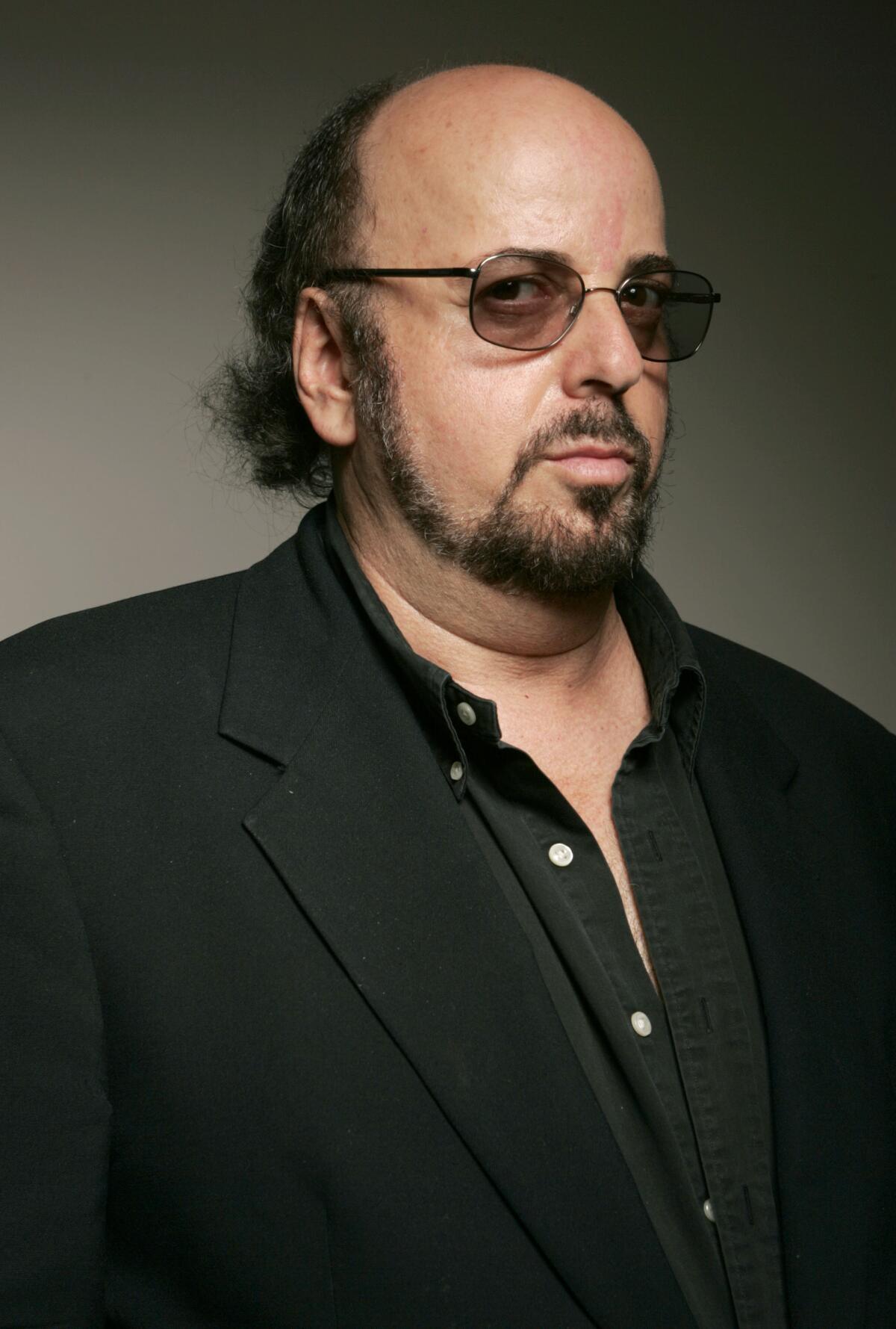38 women accuse James Toback of sexual misconduct in new lawsuit

- Share via
Five years after a Times investigation into sexual harassment allegations against James Toback, 38 women filed a joint lawsuit against the filmmaker on Monday claiming sexual misconduct.
The suit was filed in New York Supreme Court in Manhattan under the Adult Survivors Act, a recently passed state law that opens a one-year window for survivors of sexual assault to file civil lawsuits against their abusers or their estates and any institutions that may have protected the accused by ignoring or encouraging an environment that allowed the assaults to occur.
The Harvard Club of New York City, a private venue for Harvard University alumni where the suit alleges Toback met several of the women, is also named as a defendant.
The lawsuit accuses Toback, who earned an Oscar nomination for writing the 1991 crime drama “Bugsy,” of using his reputation and power to entice young women “through fraud, coercion, force and intimidation into compromising situations where he falsely imprisoned, sexually abused, assaulted, and/or battered them.”
Taking language from the Times’ 2017 investigation, the suit claims that, for decades, Toback relentlessly coerced women into meetings framed as interviews or auditions that quickly turned sexual.
“The way he presented it, it was like, ‘This is how things are done,’” actress Adrienne LaValley told The Times in 2017, describing a 2008 hotel room encounter that ended with Toback trying to rub his crotch against her leg. When she recoiled, he stood up and ejaculated in his pants, according to LaValley. “I felt like a prostitute, an utter disappointment to myself, my parents, my friends. And I deserved not to tell anyone.”
LaValley is one of 15 plaintiffs in the suit identified by name, with 23 others identified as “Jane Doe.”
Six of the 38 alleged assaults described in the lawsuit occurred at the Harvard Club, according to the complaint. Toback took women to the club for meals and drinks, the lawsuit reads, “attacking them in the Harvard Club’s dining room, stairwells, bathrooms and hotel rooms.”
The complaint alleges that Toback was allowed “unfettered access” to employees-only areas of the club, where the filmmaker could “lure, seclude, falsely imprison and sexually abuse, assault and/or batter his victims.”
A Harvard Club spokesperson told The Times that the club terminated Toback’s membership in 2017. (He graduated from Harvard in 1966.) She declined further comment, saying the club does not discuss matters involving pending litigation.
Toback, who has withdrawn from the public eye since 2017, was served in Manhattan on Monday, according to Ross Leonoudakis, one of the attorneys filing the lawsuit. A call to Toback’s most recent legal representation was not immediately returned.
Toback denied the allegations when contacted by The Times in 2017, saying that he had never met any of these women or, if he did, it “was for five minutes and have no recollection.” He also repeatedly claimed that for the prior 22 years, it had been “biologically impossible” for him to engage in the behavior described by the women, saying he had diabetes and a heart condition that required medication.
In the months following The Times investigation, nearly 400 women contacted the news organization with accusations of sexual harassment by him.
Los Angeles prosecutors declined to press charges in 2018 against Toback in five investigations into his conduct because the allegations were beyond the statute of limitations.
Since the Adults Survivors Act was introduced on Thanksgiving Day, several notable claims have been filed. Journalist E. Jean Carroll sued former President Donald Trump, claiming Trump committed battery “when he forcibly raped and groped her” and then defamed her when he denied raping her last month. Billionaire investor Leon Black was sued by a woman alleging he “brutal[ly]” raped her at Jeffrey Epstein’s Manhattan townhouse in spring 2002.
Legal experts say thousands more sexual misconduct lawsuits are expected to arrive in the coming months.
“When someone is victimized like this, it often takes a long time for them to decide to come forward,” says Brad Beckworth, another of the attorneys on the team filing the Toback lawsuit. “There’s trauma from the incident or incidents. Sometimes the abuse is ongoing. Sometimes they’re afraid it’s going to affect them in their careers. So this New York law provides a way to seek vindication, to tell their story and try to get justice.”
More to Read
The biggest entertainment stories
Get our big stories about Hollywood, film, television, music, arts, culture and more right in your inbox as soon as they publish.
You may occasionally receive promotional content from the Los Angeles Times.











